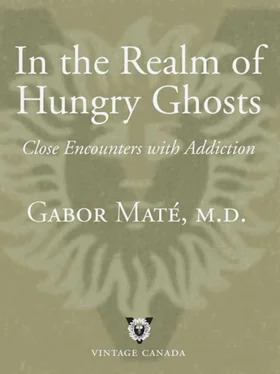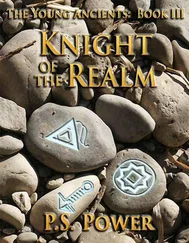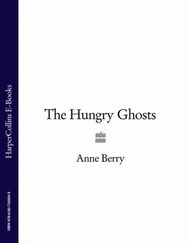• Stress is a major trigger for substance abuse and other addictive behaviours and the most predictable trigger for relapse.
• Stress hormones can themselves become addictive.
Addiction is often a misguided attempt to relieve stress, but misguided only in the long term. In the short term addictive substances and behaviours do act as stress relievers.
The ecological approach to recovery must, therefore, address the stresses in one’s life. It’s impossible to cool the circuitry of the addicted brain if we leave it heated by chronic stress.
In Isabella’s case, as in most, the stressors were not simply objective circumstances but a rash of attitudes and perceptions that both evoked and magnified the stresses of her situation. Consider, for example, her inhibitions in dealing with her emotions of fear and resentment toward her husband. Where she believed he was “controlling,” she had never asserted her desire for financial equality and partnership in the marriage. Where she doubted his sexual orientation, she had kept her concerns secret for fear of “rocking the boat.” Where she craved freedom to pursue her art, she allowed herself to be held back by her fear that he would disapprove.
As the famed stress researcher Dr. Bruce McEwen has pointed out, a key determining factor triggering the stress response is the way a person perceives a situation. 2We ourselves give events their meaning, depending on our personal histories, temperament, physical condition and state of mind at the moment we experience them. Thus the degree to which we’re stressed may depend less on external circumstances than on how well we are able to take care of ourselves physically and emotionally. We may also take on chronic stresses because of ingrained beliefs of how we “ought” to be. Some people, for example, may find themselves unable to say no to work demands or the emotional expectations of their spouse, adult children or family of origin. Something has to give—and what gives, if not our physical health, is our mood or peace of mind. Addiction comes along as an “antidote.”
To see addiction as the only problem is to leave intact the context that triggered the addiction in the first place.
For human beings most stressors are emotional ones. Anyone wanting to gain mastery over their addiction process must be ready, through counselling or some other means, to look honestly and clearly at the emotional stressors that trigger their addictive behaviours, whether these stressors arise at work, in their marriage or in some other aspect of their lives.
In our culture, the suppression of emotion is a major source of stress and therefore a major source of addictions. Science tells us that not even in rodents can the link between emotions and mental organization be ignored. In her Berkeley laboratory Dr. Marian Diamond found improvements in the problem-solving abilities of rats treated with tender, loving care, and this corresponded with the growth of richer connections in their cortex. “Thus,” Dr. Diamond has written, “it is important to stimulate the portion of the brain that initiates emotional expression. Satisfying [one’s] emotional needs is essential at any age.” 3
Once more, the release of addiction’s hold requires awareness: awareness of where we keep ourselves hobbled and stressed, where we ignore our emotions, restrict our expression of who we are, frustrate our innate human drive for creative and meaningful activity and deny our needs for connection and intimacy. In the ecology of gardening it is not enough to pull up the weeds. If we want something beautiful to grow, we have to create the conditions that will allow it to develop. The same is true in the ecology of the mind.
When truly sober, we look back compassionately at our addicted selves and, like the human boy Pinocchio gazing at his wooden toy self slumped on a chair, we shake our heads and say: “How foolish I was when I was a puppet.”
CHAPTER 33

A Word to Families, Friends and Caregivers

Purity and impurity belong to oneself. No one else can purify another.
BUDDHA
The Dhammapada
To live with an addict of any kind is frustrating, emotionally painful and often infuriating. Family, friends and spouse may feel they are dealing with a double personality: one sane and loveable, the other devious and uncaring. They believe the first is real and hope the second will go away. In truth, the second is the shadow side of the first and will no sooner leave than will a shadow abandon the object whose shape it traces on the ground—not unless the light comes from a different angle.
While it is natural for the loved ones of an addict to wish to reform him, it cannot be done. The counterwill-driven resistance to any sense of coercion will sabotage even the most well-meant endeavour by one human being to change another. There are many other factors, too, including the powerful underlying emotional currents and brain physiology from which addiction springs in the first place. The person attached to his addiction will respond to an attempt to separate him from his habit as a lover would to someone who disparages his beloved: with hostility. Any attempts to shame him will also trigger rage. Until a person is willing to take on the task of self-mastery, no one else will induce him to do so. “There are no techniques that will motivate people or make them autonomous,” psychologist Edward Deci has written. “Motivation must come from within, not from techniques. It comes from their deciding they are ready to take responsibility for managing themselves.” 1
Contrary to a popular misconception, confrontational “tough love” interventions are likely to fail. A 1999 study compared confrontation with a method employing a nurturing attitude by the family. “More than twice as many families succeeded in getting their loved ones into treatment (64 percent) with the gentler approach than with standard intervention (30 percent). But no reality shows push the less dramatic method, and it is difficult to find clinicians who use it,” science and health journalist Maia Szalawitz commented in the New York Times. 2
Family, friends and partners of addicts sometimes have only one reasonable decision in front of them: either to choose to be with the addict as she is or to choose not to be with her. No one is obliged to put up with unreliability, dishonesty and emotional withdrawal—the ways of the addict. Unconditional acceptance of another person doesn’t mean staying with them under all circumstances, at no matter what cost to oneself; that duty belongs only to the parents of a young child. Acceptance in the context of adult-to-adult relationships may mean simply acknowledging that the other is the way he or she is, not judging them and not corroding one’s own soul with resentment that they are not different. Acceptance does not mean saintly self-sacrifice or tolerating an eternity of broken promises and hurtful eruptions of frustration and rage. Sometimes a person remains with an addicted partner for fear of the guilt they might experience otherwise. A therapist once said to me, “When it comes to a choice between feeling guilt or resentment, choose the guilt every time.” It is wisdom I have passed on to many others since. If refusal to take on responsibility for another person’s behaviours burdens you with guilt, while consenting to it leaves you eaten by resentment, opt for the guilt. Resentment is soul suicide.
Leaving the addict or staying in the relationship is a choice no person can make for anyone else, but to stay with him while resenting him, mentally rejecting him and punishing him emotionally, or even just subtly trying to manipulate him into “reform” is always the worst course. The belief that anyone “should” be any different than he or she is is toxic to oneself, to the other and to the relationship.
Читать дальше













